Working It Out: Reflections on a Five-Year Experiment
by Miles Raymer
Introduction: How I Got Here
Five years ago, in October 2013, I committed myself to an experiment that felt both comfortably secure and quite risky. After teaching abroad in Japan for a year, I returned to my hometown in Humboldt County, CA, moved in with my mother and girlfriend, and actively eschewed all forms of traditional employment. My plan (if you could call it that) was to farm veggies on my mother’s property, work on home improvement projects, and spend the rest of my time reading and writing. I was dissatisfied with the prospect of getting a normal job and wanted to create my own version of a lifestyle I’d experienced briefly while living in Southern Oregon during the spring of 2012. This is how Words&Dirt was born.
Although I enjoyed the profound privilege of a parent and partner who were willing to support me financially, I still found it difficult to intentionally get off the achievement train I’d been riding my entire life. I’d always been a top student and competitive athlete––the kind of kid that friends and neighbors thought would surely leave Humboldt for greener pastures and never look back. I was still addicted to external validation, despite the positive self-development I’d undergone while studying philosophy at the University of Oregon’s Clark Honors College. I wouldn’t have put it this way at the time, but I think I was looking for a physical and intellectual space into which truth could wander:
If you want to go deeply into any subject, you need a lot of time, and in particular you need the privilege of wasting time. You need to experiment with unproductive paths, explore dead ends, make space for doubts and boredom, and allow little seeds of insight to slowly grow and blossom. If you cannot afford to waste time, you will never find the truth. (21 Lessons for the 21st Century, by Yuval Noah Harari, 225)
My readers are best suited to determine whether I was able to uncover much truth over the last five years, but in retrospect it seems clear that my decision sprang from a combination of understandable cowardice and sophomoric bravery. I was too scared to take the world by the horns, but just bold enough to believe I could thrive on a road less traveled. The purpose of this essay is to articulate and share what I’ve learned, specifically by examining the ways in which my ideas about and relationship with the concept of work have changed.
Remunerative Labor (RL) vs. Non-Remunerative Labor (NRL)
I will probe the considerable limits of categorization later on, but for the moment it will be helpful to conceptualize labor as fitting into two basic categories: Remunerative Labor (RL) and Non-Remunerative Labor (NRL). I define RL as labor that I exchange explicitly and exclusively for money, whereas NRL is labor that I either volunteer or exchange for some non-monetary benefit.
While I began the experiment immersed solely in NRL, RL slowly crept into my life, first in small spurts and then with increasing insistence as my late twenties gave way to my early thirties. Today, as 2018 wanes, I find myself embedded in a web of work, a mélange of RL and NRL that, although sometimes precarious, provides an array of opportunities to engage with my community and the greater world. In practice, I have found that RL and NRL require distinct commitments and produce unique psychological, economic and social effects.
Remunerative Labor: Getting the Job Done
Chronologically, steady RL was the last type of labor to enter the experiment. However, I think it will be useful to take it up first since the nature of RL is more traditional and will be familiar to readers.
RL is the way we “make a living,” as the saying goes. It perches on the fulcrum between our personal desires and the demands of the world, sometimes mocking or scorning us, other times drawing the very best from our body-minds in ways we wouldn’t previously have thought possible. RL is a compromise, and a coercive one for most. Only a lucky and privileged few get the opportunity to negotiate fairly with RL, whereas the majority must prostrate themselves to market forces and the whims of capitalism. As a member of that lucky and privileged few, I’ve spent much energy and verbiage grappling with the best way to inhabit my good fortune. In general, I favor a self-indulgent default while occasionally succeeding in my ambition to embody true decency and compassion. It is this ambition––my better angel––that I’ve tried to bring to my RL.
From late 2013 to early 2016, the only forms of RL that I took up were the occasional garden/landscaping job, and about three months of work I did with Dan and Sean––the contractors who built the extension to my childhood home where my wife and I now live.
Those jobs had their perks and drawbacks, but never made me much money and never sparked a desire to dive in further. That all changed in early 2016 when I was recruited by a couple of friends to join the management team of Northern Emeralds, a fledgling Humboldt-based cannabis company looking to ride the wave of legalization. I started working part-time (10-20 hours per week), and while I’ve retained that status my commitment has since increased to 25-35 hours per week.
I cannot begin to fully enumerate the lessons I’ve learned from working at Northern Emeralds over the last two and a half years. It has been a period of intense intellectual transformation that compares only to my final years as an undergraduate, when I felt myself changing more rapidly and profoundly than ever before. Leaving aside all the technical skills and business-related information I’ve internalized, the big takeaway is that I’ve constructed a relatively healthy relationship with RL for the first time, one that generally gives back as much as it takes.
This experience has taught me that, unlike NRL, RL is exceptionally good at forcing me to overcome obstacles and push the boundaries of my perceived limitations. The combination of knowing that I’m being paid for my time and being surrounded by other hardworking team members who need my help is motivating in a way that I’d not previously experienced. I’ve also learned how to lean on my team members when I need their support, how to cultivate interpersonal bonds based on mutual respect for overlapping and non-overlapping skillsets, and how to generate cooperative coalitions within an organization in order to get things done that no single person could accomplish.
Northern Emeralds is a start-up that lacks the structure of an established business, so it has been up to our CEO and the management team to decide each step of the way how we want our company to function, all the while hustling to meet the needs of California’s dynamic and sometimes volatile legal cannabis market. We have met this challenge imperfectly, to be sure, but I am tremendously proud of what we’ve accomplished thus far, and hope to continue my contribution as the business grows and evolves.
Being part of this environment has made me much more confident in my ability to acquire new skills, to create and maintain complex systems of organization, and to navigate the difficult tension between the human needs of employees and the often-unsavory realities of running a for-profit business. My ethics and problem-solving skills have been tested and honed by a constant flow of logistical puzzles and practical moral problems that rarely admit easy solutions. As a result, I believe RL has boosted what Nassim Taleb would call my capacity for “antifragility”:
Some things are antifragile. Many of the important systems in our economic and political life are like immune systems: they require stressors and challenges in order to learn, adapt, and grow. Systems that are antifragile become rigid, weak, and inefficient when nothing challenges them or pushes them to respond vigorously. (The Coddling of the American Mind, by Greg Lukianoff and Jonathan Haidt, 23, emphasis theirs)
Nurturing one’s antifragility is often difficult and occasionally infuriating, but the professionalism demanded by RL provides excellent motivation for me to keep calm, stay civil, put my head down and find a workable solution, even when all I really want to do is scream and quit.
As anyone who’s gone from making no income to making some income knows, it’s great to have a little extra money. The primary reward of RL is an increased ability to monetarily manifest my immense gratitude for my family and friends in a way that wasn’t available before. One thing I didn’t anticipate early in the experiment was how much I would enjoy being able to spend money on other people––to take my dad to lunch and pick up the check, to impulsively buy a gift for my wife, to treat a friend to a concert ticket, to start helping my mother pay our property taxes. I also love having money to donate to organizations and causes I believe in, whether political, artistic or humanitarian. Finally, I’m not above paying $10 for a fancy beer when it’s time to kick back on Friday evening. Doing these things fills me with happiness and pride.
I consider myself extremely lucky to have discovered the positive elements of RL in a fashion that is self-directed––driven by curiosity and opportunity rather than necessity or desperation. However, there are still many aspects of RL that aren’t good for me, and that I believe aren’t good for people in general. RL can become completely consuming, sometimes for good reasons. RL can strain the emotional relationship with our deeper humanity, blotting out the quest for self-discovery and replacing it with a bland march toward ever-increasing productivity. Having more often leads to wanting more, and the hedonic treadmill tempts even the toughest minds.
In my view, the worst feature of RL is its unholy alliance with our capitalist economy. My rabid anti-capitalist days are long over, but I’m still repelled by the brand of hyper-capitalism that dominates modern America and much of the global economy. It is exhausting and humiliating to carve out a place for oneself in a winners-take-all world that values dollars more than human beings, and the degree to which we’ve failed to properly redistribute the profits of the single greatest wealth-creating era in human history is staggering to me. When I participate in RL, especially in the private sector, I am lending my consent to systems that value economic abstractions and the consolidation of wealth and power more than they value natural environments and people. I try not to ignore this reality, and have found that the best way to take responsibility for the negative qualities of RL is to double down on my dedication to NRL.
Non-Remunerative Labor: Work as Gift
In Sacred Economics, Charles Eisenstein describes his vision for a “sacred” economy:
In an economy that deserves to be called “sacred,” work will no longer be an injury to one’s time or life; it will no longer be a matter of pain and suffering. A sacred economy recognizes that human beings desire to work: they desire to apply their life energy toward the expression of their gifts. (402)
This is a rather dewey-eyed idea from a book that I had a lot of problems with, but the notion that work is all about the expression of one’s gifts is powerful. In my cultivation of NRL, I’ve returned time and again to this sentiment, and can say unequivocally that participation in NRL brings a depth and meaning to my life that I can’t imagine accessing any other way.
A more pragmatic and scalable vehicle for this kind of thinking can be found in Andrew Yang‘s tenets of “Human Capitalism”:
- Humanity is more important than money.
- The unit of an economy is each person, not each dollar.
- Markets exist to serve our common goals and values. (The War on Normal People, 200)
These tenets are consonant with my conception of how NRL can help individuals and communities reshape how we think, talk about, and practice the art of work, thereby paving the way for more substantial political and economic changes.
During my five-year experiment, various forms of NRL became part of my routine through an organic process, each with its own challenges and rewards. As of this writing, my NRL commitments break down as follows:
- Garden/household chores: 5-10 hours/week
- Words&Dirt: 5-10 hours/week, including reading and writing
- Internship at Tule Fog Farm: 4-5 hours/week, occasionally more when pulling extra days
- Volunteering with Friends of the Dunes and the Adopt-A-Highway program as team coordinator for Northern Emeralds: 3-4 hours/month
- Singing with the Eureka Symphony Chorus: 2-4 hours/week during performance seasons (typically twice a year in spring and fall)
- Coordinator for the Humboldt Learners’ Society, an education-based social club I founded in 2015: 2-3 hours/month
Of all the NRL opportunities I explored, these are the ones I chose to weave into the permanent fabric of my life. Each allows me to contribute to my community in a positive, productive way, and each also aligns more with the tenets of Human Capitalism than with more traditional models of labor allocation.
There are several important lessons I’ve learned from devoting a significant portion of my time to NRL. This first one doesn’t necessarily apply to all forms of NRL, but has been very true for me personally: Place matters. On the Humboldt coast, one is surrounded by majestic redwoods, peaceful rivers, gorgeous pastures, and scenic beaches. These environmental boons inspire awe and respect for the natural world, and performing NRL is an excellent way to transform those emotions into action. Through seeking out and sticking with NRL that celebrates and preserves local microclimates, I have become a better and more informed community member.
The second lesson is that NRL can shore up shared values and strengthen communities in ways that RL just can’t. Nowhere in my experiment has this been more apparent than in my internship at Tule Fog Farm.
Tule Fog Farm is a family farm in Arcata run by a woman named Shail. Each year, Shail produces a superb meat CSA for a small group of subscribers. She cultivates a wide range of farm animals: chickens, goats, sheep, pigs, cows, turkeys, geese, and even alpacas. She practices intensive rotational grazing and treats her animals with the care and respect they deserve, admirably balancing the basic needs of both animal and farmer. She’s also got three kids and is a terrific mom.
For five years now, I’ve been helping out with morning chores at Tule Fog Farm once a week. I treat this like a job; I am never late without a good reason and I only cancel if I’m too sick to get out of bed. I don’t get paid, but Shail always sends me home with something––a jar of milk or yogurt, or a cut of delicious meat. For several hours, I separate completely from my RL responsibilities and do whatever Shail says. Her needs become my needs and her will becomes my will.
After a couple years, what started as a way to learn about sustainable agriculture evolved into a complex and deep friendship, one that is unlike any other relationship in my life. My friendship with Shail derives not only from mutual respect and shared values, but also from mutual struggle and shared sweat. Shail is one of the strongest and most keenly perceptive people I’ve ever met; watching her haul water, adjust fencing, and wrestle pigs twice her size has taught me time and again that there are few limits to what a people can accomplish when we combine raw determination with intelligent execution.
Being a peripheral presence at Tule Fog Farm has brought so much goodness into my life. The specificity of this bond––that it can only be sustained in this space, by these people, with time that is freely and joyfully given––is a powerful remedy for existential angst and a cornerstone of community-building. It simply would not function the same way if money changed hands. The same is true for other forms of NRL, each of which invites a unique slice of meaning into my life.
In truth, I would devote all of my time to NRL if I weren’t so anxious about what that decision would mean for my long-term economic prospects. This leads me to the third and most important lesson I’ve learned from NRL: The modern capitalist market has failed utterly to value human time and labor in a fashion that accords with truly ethical living. Andrew Yang provides a telling list of things that are either undervalued or not valued at all by our current economic system:
- Parenting or caring for loved ones
- Teaching or nurturing children
- Arts and creativity
- Serving the poor
- Working in struggling regions or environments
- The environment
- Reading
- Preventative care
- Character
- Infrastructure and public transportation
- Journalism
- Women
- People of color/underrepresented minorities (The War on Normal People, 198)
This list, which is both unacceptably long and far from comprehensive, will lengthen as automation and technological disruption displace more and more workers in the coming decades. Combine this dynamic with an accelerated disintegration of global stability due to climate change, and the future starts to look quite bleak.
We don’t have time to ignore the importance of NRL any longer; we must find a way to make it something that all people can comfortably welcome into their lives––not just a fortunate few. The problem is not that RL is somehow evil or corrupt, but rather that the sole pursuit of RL in the 21st century won’t provide the vast majority of people with a way of life that is desirable, meaningful, and sustainable. In a better world––one shaped using the tenets of Human Capitalism––most forms of NRL would command a good wage. An even better solution would be for all citizens to receive a basic income that would simultaneously lift our most vulnerable citizens out of abject poverty and subsidize participation in NRL for citizens who want to take it up but don’t have the financial flexibility to do so. I believe that building this better world is the great sociopolitical project of our time, the one upon which the prosperity of present and future generations will rest––if we get it right.
Conclusion: Life’s Work
When asking the tough questions about how to spend our precious time on Earth, it is easy to pit life and labor against each other. This way of thinking has become prevalent in recent years as we all struggle to find our place in the rapidly-changing modern economy, and as available leisure time has increased. We strategize about striking the proper “work-life balance,” identify as people who “live to work” or “work to live,” and modify our identities (sometimes radically) to serve our personal and professional schemas.
While I think the work-life dichotomy has some positive utility, the five-year experiment taught me that this is not generally an efficacious way of understanding myself or my work. Even the distinction between RL and NRL, like so many other categories we fabricate to convey our thoughts, becomes blurry and reductive when subjected to scrutiny. I discovered this shortly after my recent decision to begin practicing meditation. The practice is helping me develop a framework for conscious experience that applies universally to all activities and encounters, insisting on the moral significance of every exertion, regardless of contract or context.
The truth is that there is always a laborious element to living. Every moment, every day, we are confronted with problems and opportunities, each of which offers the chance to embody a better or worse self. Life’s work, as I’ve come to see it, is to recognize that chance, to see it as clearly as possible for an instant, and to allow that instant to have a say in what comes next. In the rare moments that I am able to do this, I become the person I truly want to be.
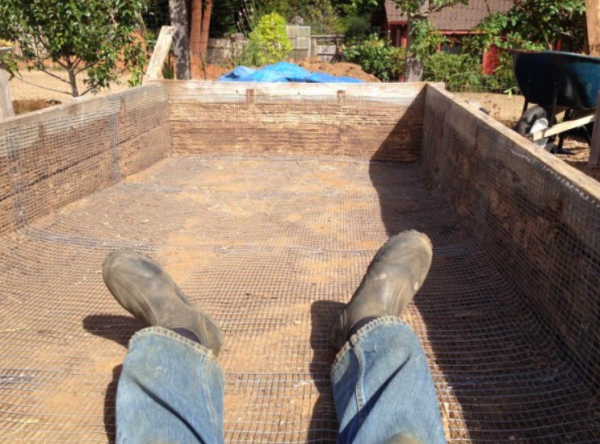
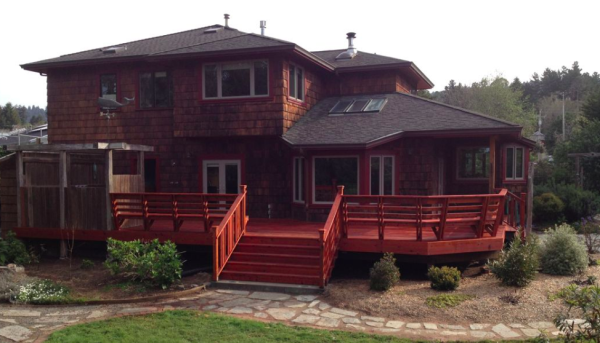

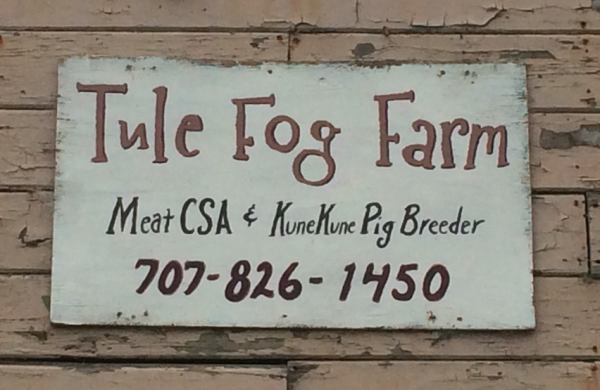
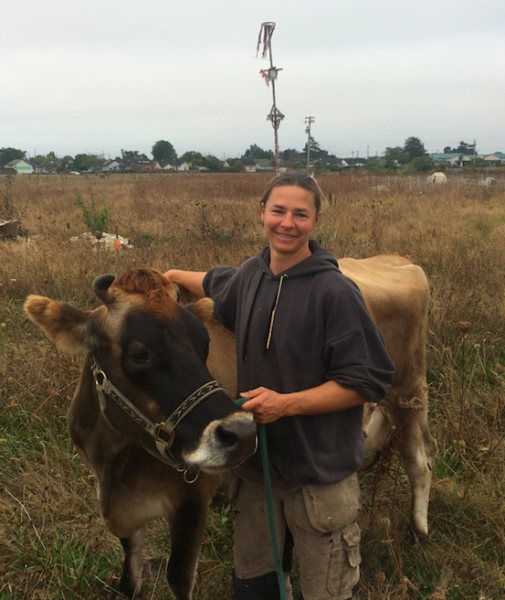
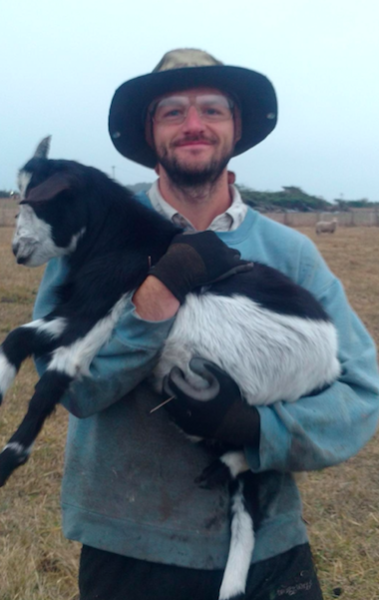
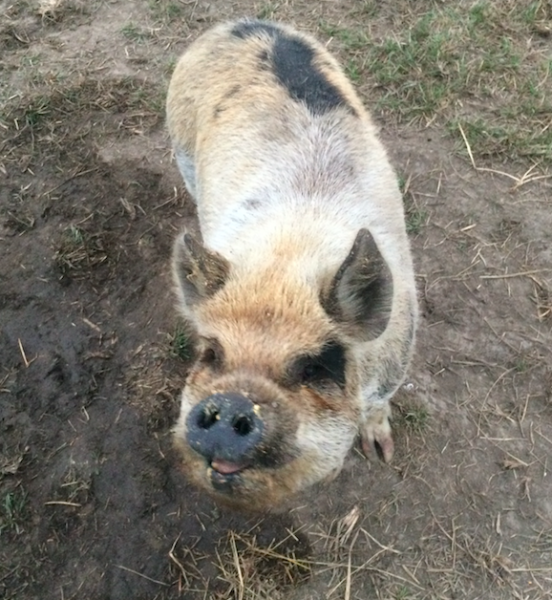
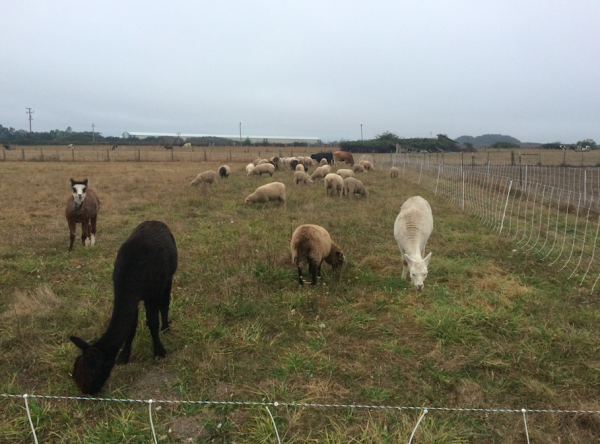
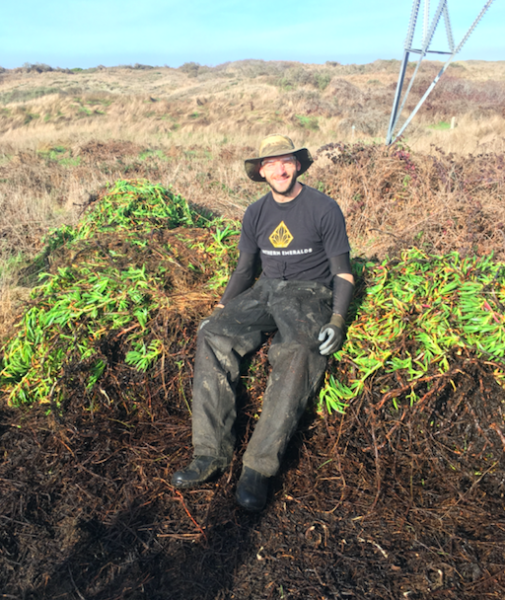
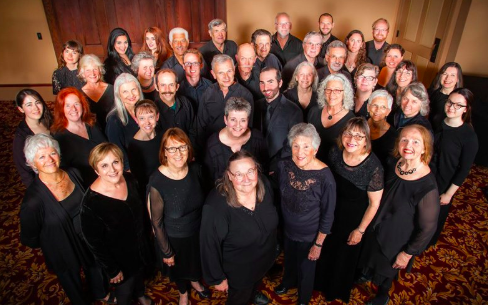
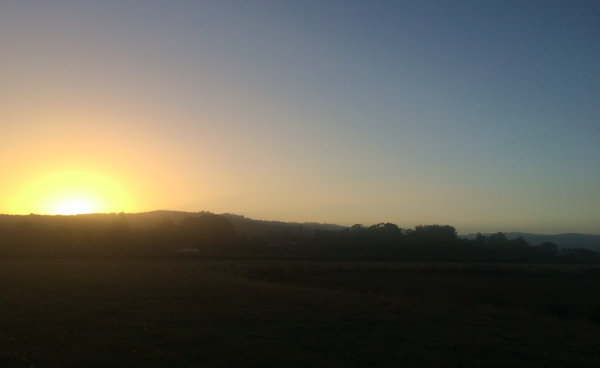
incredibly thoughtful and deeply personal piece of writing, Miles. I continue to marvel at the evolution from the infant to the boy to the man I see today whose writing and life is an inspiration and a sign to this old fatalist that there is yet hope for a humanity transformed!
Thanks Jim! As always I value your readership and this extremely kind comment!
As always. Thanks so much for the thoughts to chew on!
As always, thanks for reading! 🙂
Nice reflection, thanks for reminding me to try and do the same
Thanks for reading!